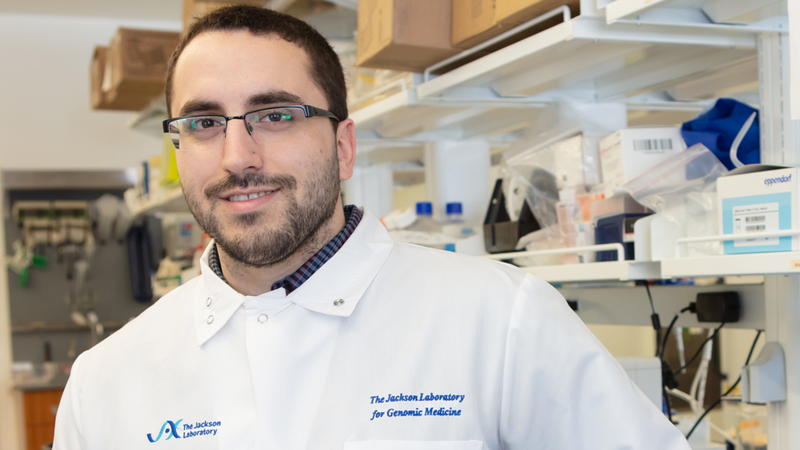Unraveling the genetics of heart failure
The Search Magazine Article | July 23, 2019
JAX predoctoral associate Anthony Pettinato has been awarded a fellowship from theAmerican Heart Association (AHA) to support his doctoral research and training. Pettinato, an M.D.-Ph.D. student at UConn Health, wants to understand how genetic differences impact heart function. His research focuses on cardiac troponin T, a key building block of heart muscle.
More than 10% of all deaths in the United States involve heart failure. Despite the immediacy that a failure of the heart implies, the disease exerts its effects over several years – meaning that heart failure can be treated, but it cannot be cured. The damage that the heart accumulates prior to a diagnosis cannot be reversed.
pre-and-postdoctoral-program
Not everyone is equally at risk for heart failure. The disease is influenced by lifestyle and environmental factors – diet, exercise, stress – and also by genetics. Pettinato is using genetics to understand the causes of heart failure. His research will reveal molecular pathways that put individuals at risk for cardiomyopathy, a disease of the heart muscles than can lead to heart failure. Those molecular pathways may lead to new clinical approaches for preventing the disease.
Pettinato’s research focuses on a gene called TNNT2, whose DNA sequence varies between individuals. Some TNNT2 variants are associated with a high risk for cardiomyopathy. For the majority of those TNNT2 variants, how exactly they affect the heart muscle is not known.
The TNNT2 gene encodes for the troponin T protein, which is a key protein that regulates how the heart muscle contracts. In order to discover howTNNT2 variants affect contractions, Pettinato uses a simplified system, looking at heart muscle cells – cardiomyocytes – in culture. This reductionist approach will allow him to define precisely what cellular functions are affected by TNNT2 differences.
The AHA Predoctoral Fellowship provides Pettinato with two years of support for his research and training under the guidance of J. Travis Hinson, M.D., JAX Assistant Professor and UConn Health Assistant Professor of Cardiology and Genetics. Following completion of his thesis research at JAX, Pettinato will return to UConn Health to complete the clinical portion of his M.D. degree. As a physician-scientist in training, his longer-term goal is to study and treat cardiac disease in both the clinic and the lab.
creating-a-paradigm-shift-in-heart-disease
“I feel privileged to have been awarded this fellowship grant from the AHA,” said Pettinato. “The support it provides will make me better equipped to tackle the transformative scientific questions that are the focus of my Ph.D. thesis in Dr. Hinson’s lab. I believe that my work regardingTNNT2 will enhance our understanding of basic cardiac biology, and eventually lead to improved outcomes for patients at risk of developing heart failure.”
“We are extremely grateful for this strong vote of confidence from the AHA for Tony and his project to study TNNT2”, added Hinson. “With this award, the AHA has provided critical support for a star physician scientist in the field of cardiovascular medicine. Tony will certainly contribute significantly to our understanding of the genetic basis of heart failure that should pave the way forward for precision medicine.”
